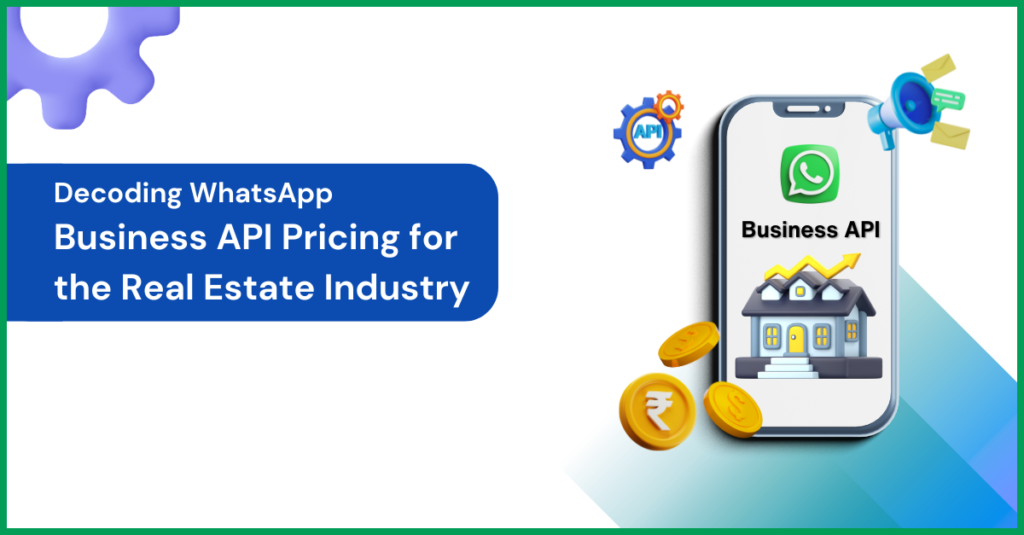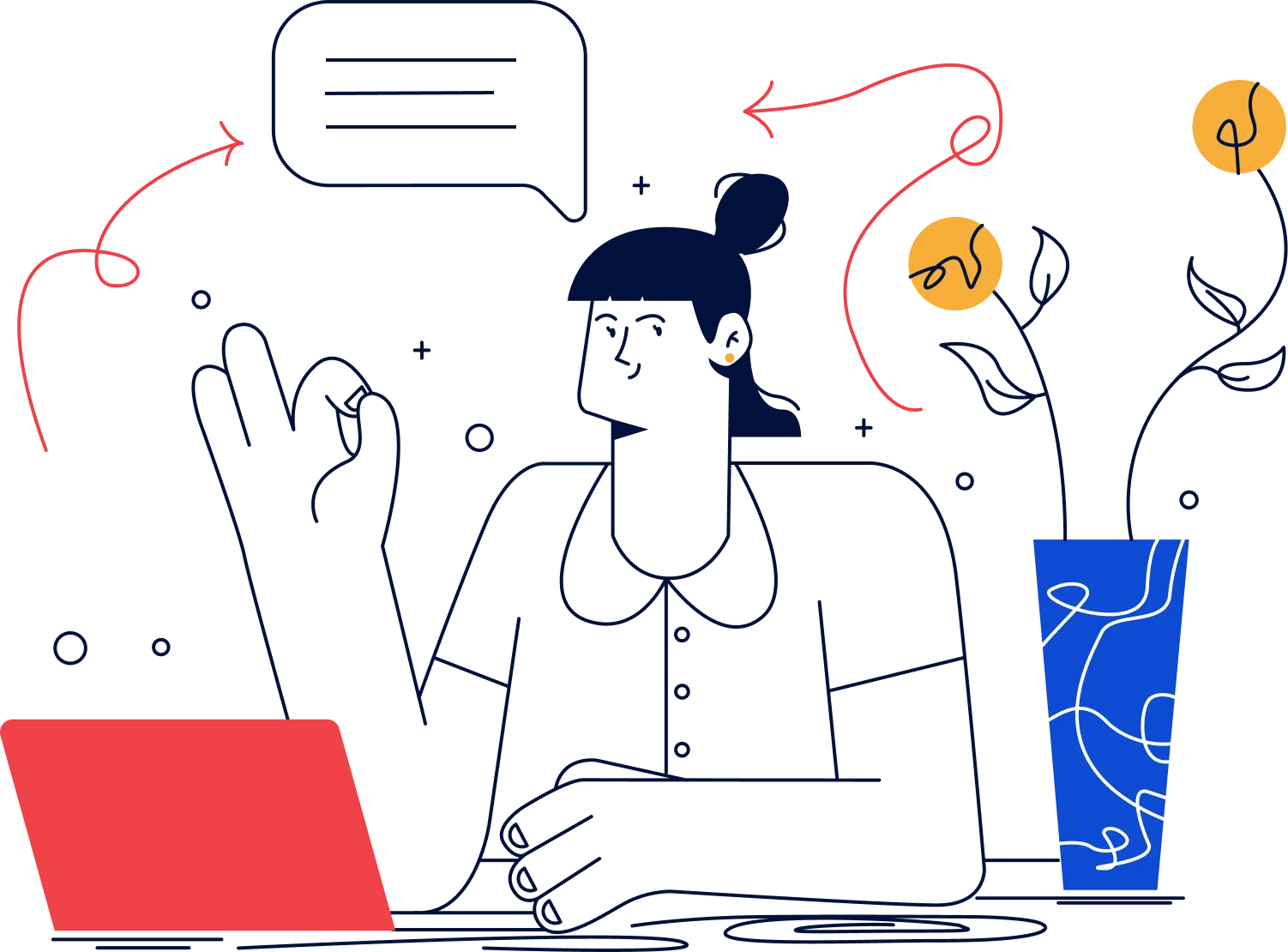Decoding WhatsApp Business API pricing for the Real Estate Industry: Complete Guide

WhatsApp Business API provides real estate professionals with powerful tools to improve communication. Improve operations and increase sales. However, understanding your pricing structure is critical to budgeting and maximizing your return on investment. This blog post provides a comprehensive overview of WhatsApp Business API pricing, with a specific focus on applications in the real estate industry.

Understand the WhatsApp Business API Pricing Model
Unlike the free WhatsApp Business app, the WhatsApp Business API works on a different pricing model. It is not a simple subscription fee. Instead, it uses a pay-as-you-go system based on the size of the message and the type of message sent. This means you only pay for the messages you send. This makes it scalable for businesses of all sizes. However, the complexity lies in the different message categories.
Important Price Factors
Message Types: WhatsApp categorizes messages into different categories. Each type has its own price:
Session Messages: This is the most common and cost-effective type of message. Typically customer initiated and interactions allowed within 24 hours. After 24 hours of inactivity, a new session must be started. Also, another message from the client is required. Ideal for answering quick questions. Provide updates or confirm appointment.
Template messages: These are pre-approved messages that businesses can proactively send to customers. This requires prior approval from WhatsApp and is useful for sending appointment reminders. Shipping updates or marketing campaign Template messages are generally more expensive than session messages due to their proactive nature and potential for marketing abuse. Costs vary depending on the complexity and length of the template.
Interactive messages: These are advanced messages that allow users to enter information such as quick replies, buttons, or lists. They increase engagement. But it’s generally more expensive than regular texting.
Message Volume: The more messages you send, The overall cost will also be higher. This is a straightforward linear relationship. Businesses with higher message volumes may consider negotiating larger discounts with their solution providers.
Solution Providers: You don’t interact with WhatsApp directly to inquire about pricing. Instead, you use a Business Solution Provider (BSP). These providers handle technical integration and billing. Pricing models may vary. This affects the final cost you pay. Some BSPs offer tiered pricing based on message volume or additional features. Some charge a set-up or ongoing support fee.
Geographic Location: Although basic consignment pricing remains relatively constant across the world, But additional factors such as local taxes or currency conversion rates This may have a slight impact on the final bill.
Valuing Real Estate Use Cases
Let’s examine the potential whatsApp business api pricing for common real estate situations:
Sending real estate listing updates: Using template messages to distribute new listings to segmented audiences can be more expensive than responding to individual customer inquiries through session messages. The frequency of these broadcasts directly affects the overall cost.
Appointment reminders and scheduling: Template messages are effective in confirming appointments and reminders. But it increases the overall cost of sending a message.
Customer Support and Inquiries: It is generally cheaper to answer customer inquiries through session messaging. Even with large quantities, there will still be significant costs.
Marketing campaigns: Broadcast marketing campaigns even using templates can increase costs significantly. Without careful planning and targeting of highly engaged leads…
Automated Welcome Messages: Although automated welcome messages are valuable, it affect the number of messages and the total cost.
Cost Optimization
Careful message design: Using concise and effective messages reduces the amount of text needed to convey information.
Strategic segmentation: Targeted messaging to specific customer groups. Help avoid unnecessary broadcasts. Reduce message volume and costs
Choosing the right message type: Choosing the right message type. Creating a session (session or template) for each interaction is important to optimize costs. Prioritize session messages for most customer interactions to reduce costs.
Talking with your BSP: Check out the different BSPs and compare their pricing structures and offerings. Negotiate for volume discounts or customized solutions.
Track and analyze: Track your messaging spend on a regular basis. and identify areas for possible optimization. Analyse your communication strategy to optimize messaging performance.
Price Transparency and Budgeting
Accurate budgeting requires close cooperation with your chosen BSP. Get clear details of the pricing model. Including price per message type. Additional service fees that may occur and expected monthly expenses Request regular reports on your message usage and spending to ensure you stay within budget.
Final Words
While the WhatsApp Business API provides invaluable benefits to the real estate industry, understanding the pricing model is paramount to a successful operation. By carefully considering your message type, volume, and communication strategy. You can effectively manage costs by leveraging the platform’s powerful communication capabilities. Remember that cost optimization doesn’t have to come at the expense of communicating effectively with customers. It’s about finding the right balance between efficiency and ROI. Controlling your budget by working closely with your BSP and proactively tracking your spending can help maximize the value of the WhatsApp Business API.





